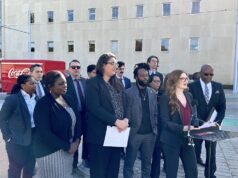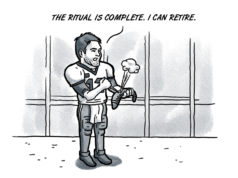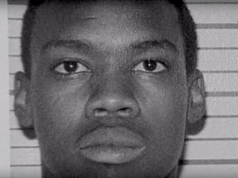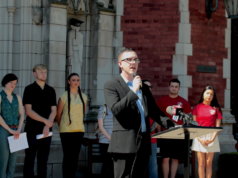
As a lifelong Dolphins fan, I was more than disappointed with the announcement they had signed former Chicago Bears quarterback Jay Cutler to a one-year contract for $10 million. The frustration I felt was not with Cutler’s reputation as a non-competitive yet talented signal caller who has underachieved for years. No, it was because I truly believed this was the one opportunity Colin Kaepernick had to get on an NFL roster.
For those of you who tend to stay out of the sport’s periphery, Kaepernick was a talented quarterback whose combination of arm strength and running skills made him a dangerous player to prepare for each week. Kaepernick was good enough that the San Francisco 49ers shipped off incumbent Alex Smith, and they were rewarded with a Super Bowl appearance in 2013.
The 49ers dropped off somewhat following their Super Bowl loss to the Baltimore Ravens – the infamous Harbaugh versus Harbaugh game – and Kaepernick found himself playing with a less-than-stellar lineup. As expected, his numbers dropped off, too.
The 2016-17 season wasn’t expected to be much of one for the 49ers or Kaepernick, whose decision to not stand for the national anthem in the first two preseason games went mostly unnoticed. His protest finally received some attention, however, in the third preseason game. Publicity surrounding his decision grew exponentially as he continued to sit and eventually took a knee during the national anthem throughout the preseason and regular season.
Viewing Kaepernick’s protest in context
His reason for this rebellion was not to be taken lightly: He wanted to use his position as an NFL quarterback to shed light on the oppression of black people in the United States. In particular, the stance followed a series of shootings involving white police officers and presumably innocent black men. In some cases, video evidence indicated either full cooperation or at least a lack of aggression from the victims.
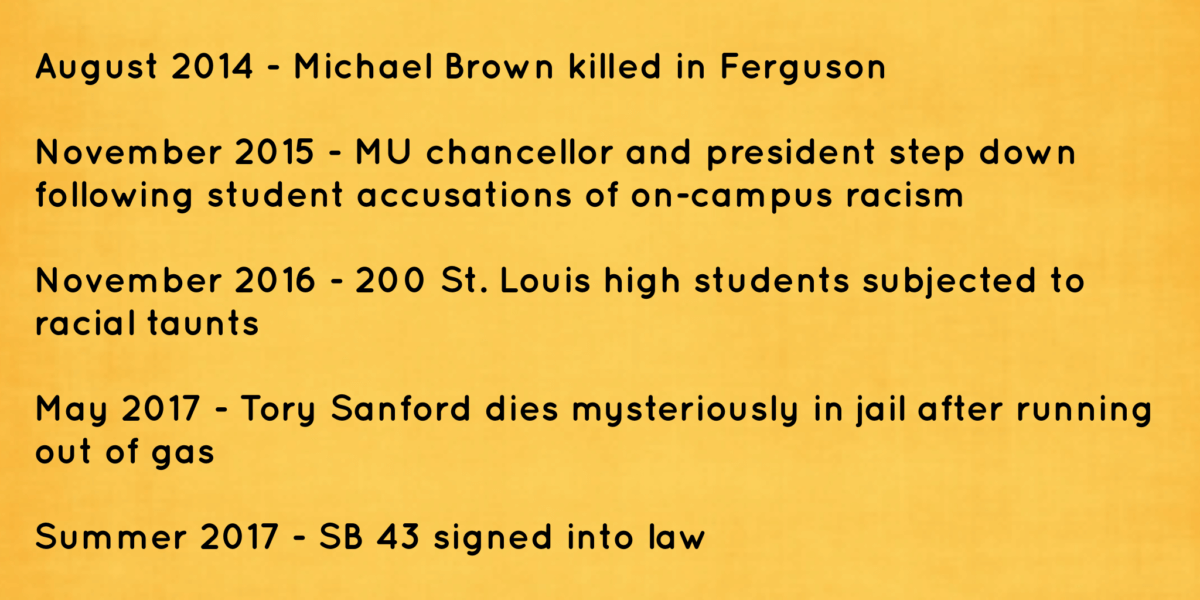
“I am not going to stand up to show pride in a flag for a country that oppresses black people and people of color,” Kaepernick said on NFL.com in August 2016. “To me, this is bigger than football and it would be selfish on my part to look the other way. There are bodies in the street and people getting paid leave and getting away with murder.”
Several other athletes joined Kaepernick in his protest throughout the season, including his teammate Eric Reid and a handful of members of my own Dolphins’ team.
Free-agent Kaepernick denied opportunities
Kaepernick announced earlier this year that he would no longer be protesting because he felt progress was being made. Since that time, Kaepernick became a free agent and has been passed over for quarterback signings by a Who’s Who of Who’s That, including former OU star Landry Jones (re-signed by the Steelers), Brian Hoyer and Matt Barkley by Kaepernick’s former team, Aaron Murray by the L.A. Rams, Blaine Gabbert (Kaepernick’s backup in 2016-17) by the Cardinals, and Austin Davis by the Seahawks.
When rumors swirled that Kaepernick might be signed by the Ravens to replace injured quarterback Joe Flacco, Baltimore instead signed David Olsen. I’m sure you remember this former Stanford and Clemson “standout?” With a career passing-yardage total of minus-one yards, I can honestly say I have more career passing yards than Olsen. And, yes, you guessed it, I did not play college football.
So, yeah, it is obvious Kaepernick is being denied an opportunity to sign with an NFL team. While this trend may not constitute a concerted effort to blackball Kaepernick, it remains clear his willingness to exercise his First Amendment rights as a U.S. citizen apparently outweigh the fact he would be an improvement over the majority of the 90 or so quarterbacks employed in the NFL.
The problem is the NFL or its team owners are wrong on this. Kaepernick’s words may not have brought attention to the problem in a way that resonated with everyone, but that is not to say there isn’t a problem. It is debatable when people started paying attention – white law enforcement attacks on black victims happened in so many places, it is hard to know when it went from isolated incidents to an epidemic.
Have we made progress?
Kaepernick may have said his protest ended because he felt his work was done, but not everyone agrees. Clearly, the fallout from this past weekend in Charlottesville, Virginia, reflects a nation divided on what should be considered acceptable when it comes to freedom of speech, as well as just how we should define racism in America. The line between what constitutes a racist and a nationalist appears blurry to some of those who weigh in on the issue. Many others feel as if they are one and the same.
Back in early June, the NAACP announced a travel advisory for anyone of color who intended to go to Missouri. The advisory was approved by the state chapter and endorsed by the national chapter.
“Individuals traveling in the state are advised to travel with extreme CAUTION,” the advisory states. “Race, gender and color-based crimes have a long history in Missouri.”
The last straw for the NAACP was a new state law making it tougher to file housing and employment discriminatory lawsuits, but among the issues of concern for those familiar with Missouri is the process of how everything played out with the death of Michael Brown in Ferguson.
Brown was just one of many black men who have fallen victim to what common sense seems to tell us is a wrongful shooting. What has been shameful is that the laws in many states have allowed those killings to be considered justified. Thus, we as a nation seem to be endorsing the legal killing of black men, which is worthy of the attention Kaepernick wanted us to give it.
Somebody needs to hire Colin Kaepernick
Whether you like Kaepernick or whether you believe a person has the freedom to not stand during the national anthem, whether you support Blue Lives Matter or Black Lives Matter, let’s hope we can all get on board with knowing that Kaepernick is good enough to be an NFL quarterback.
His employment status should reflect that.









